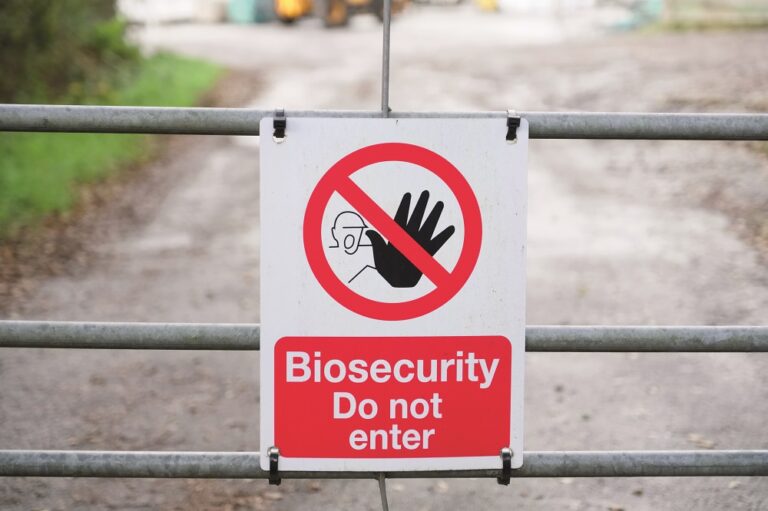An Avian Influenza Prevention Zone (AIPZ) has been declared across the whole of England to mitigate the risk of the disease spreading, the UK’s Chief Veterinary Officer Christine Middlemiss has confirmed.
This means it is a legal requirement for all bird keepers to follow strict biosecurity measures.
Keepers with more than 500 birds will need to restrict access for non-essential people on their sites, workers will need to change clothing and footwear before entering bird enclosures and site vehicles will need to be cleaned and disinfected regularly.
Public Health England (PHE) advises that the risk to public health from the virus is very low and the Food Standards Agency advises that avian influenzas pose a very low food safety risk for UK consumers. Properly cooked poultry and poultry products, including eggs, are safe to eat.
The UK Government has worked closely with Scottish and Welsh Governments to introduce national prevention zones at the same time, meaning that the restrictions will be applied across the whole of Great Britain.
The introduction of the AIPZ comes after two separate, unrelated cases in kept poultry and birds confirmed in England last week and a third case of H5N8 avian flu in captive birds was confirmed today at a broiler breeder farm in Herefordshire. A very small number of wild birds in South West of England have also been found to have had the disease.
The introduction of a prevention zone follows a decision to raise the risk level for avian influenza incursion in wild Birds in Great Britain from ‘medium’ to ‘high’ last week.
UK Chief Veterinary Officer Christine Middlemiss said: “I have declared a national Avian Influenza Prevention Zone (AIPZ) legislating for actions all bird keepers must take to help prevent the disease spreading to more poultry and other domestic birds.
“Public Health England has confirmed that the risk to public health is very low and the Food Standards Agency advises that bird flu poses a very low food safety risk for UK consumers.
“Whether you keep just a few birds or thousands, you are now legally required to meet enhanced biosecurity requirements and this is in your interests to do, to protect your birds from this highly infectious disease.”
The prevention zone means bird keepers across the country must:
- Ensure the areas where birds are kept are unattractive to wild birds, for example by netting ponds, and by removing wild bird food sources;
- Feed and water your birds in enclosed areas to discourage wild birds;
- Minimise movement in and out of bird enclosures;
- Clean and disinfect footwear and keep areas where birds live clean and tidy;
- Reduce any existing contamination by cleansing and disinfecting concrete areas, and fencing off wet or boggy areas.
The prevention zone will be in place until further notice and will be kept under regular review as part of our work to monitor the threat of bird flu.
Poultry keepers and members of the public should report dead wild birds to the Defra helpline on 03459 33 55 77 and keepers should report suspicion of disease to APHA on 03000 200 301.


